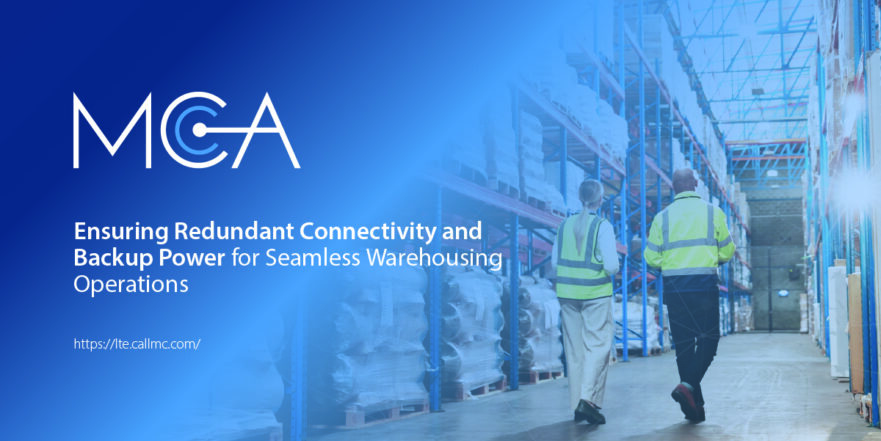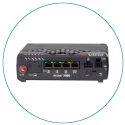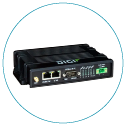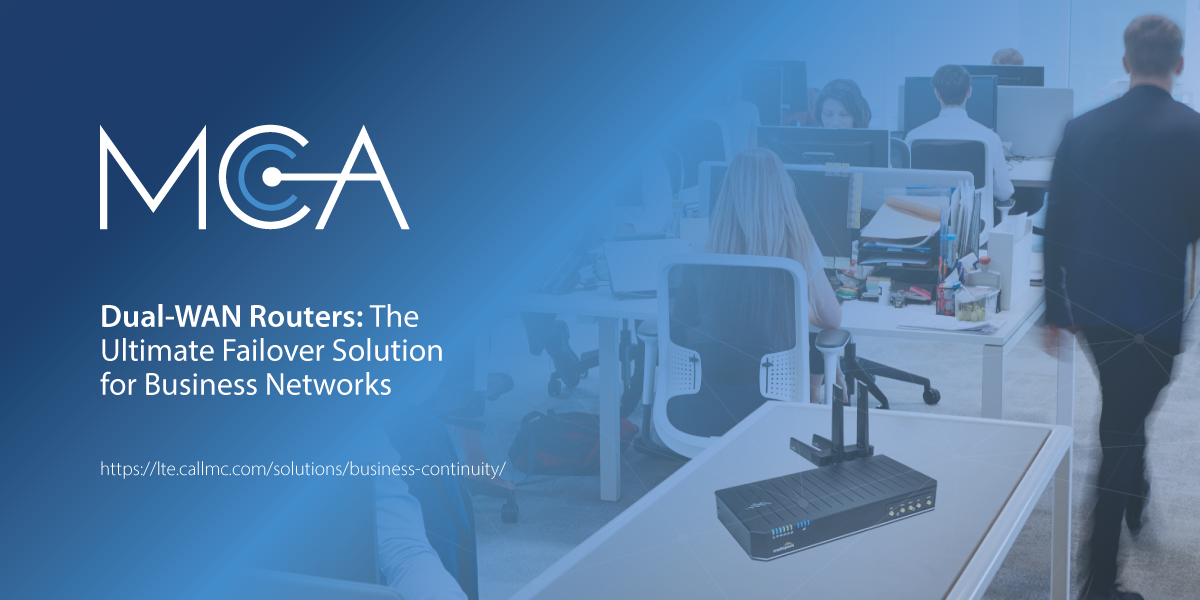How 5G Enhances Connectivity and Backup Power in Warehousing
The fast-paced evolution of technology has made uninterrupted connectivity and robust power systems indispensable in warehousing. With growing consumer expectations for speed and accuracy, warehouses must operate efficiently, leveraging advanced systems to manage inventory, coordinate shipments, and automate processes. These operations rely heavily on reliable network infrastructure, and any disruption - whether caused by a network outage or power failure - can result in significant losses. The stakes are high in this increasingly interconnected industry, from delayed shipments to compromised customer trust.
Warehousing technology now includes automated equipment, IoT devices, and software solutions that all depend on seamless connectivity. Yet, despite advancements, many warehouses remain vulnerable to single points of failure within their network and power infrastructures. Redundancy in connectivity and power systems isn’t just a safety measure - it’s a critical investment to ensure operational resilience. For warehouses striving to meet the demands of modern logistics, implementing robust solutions like 5G connectivity and fail-safe power systems is essential for maintaining continuous operations.
The Critical Role of Redundancy in Warehousing Connectivity
Warehouses traditionally rely on routers to maintain seamless internet connectivity for critical operations. Network infrastructure is the backbone of modern logistics, enabling real-time data exchange between inventory systems, communication platforms, and automated equipment such as robotics and conveyor systems. Many warehouses deploy dual-router setups, with a primary router (master) handling daily tasks and a secondary router (slave) ready to take over in case of failure. This approach reduces the risk of network downtime but is only as strong as the weakest link in the system.
5G: The Next Frontier for Reliable Warehousing Connectivity
While traditional routers provide stable connectivity, they can falter under high data loads or when subjected to external disruptions. Incorporating 5G connectivity into warehousing infrastructure introduces a new layer of redundancy and resilience. With its ultra-fast speeds, low latency, and ability to handle massive IoT (Internet of Things) connections, 5G ensures seamless communication between devices—even during peak loads or network transitions. Warehouses leveraging 5G as a backup or primary connection can enhance operational agility while supporting the growing demands of smart logistics.
Lessons from a Real-world Incident
In one warehouse, a dual-router system designed to ensure operational continuity failed when the primary and secondary routers went offline. The cause? A single uninterruptible power supply (UPS) battery, which had been in service for over six years, failed, bringing down the entire system. This incident underscores the critical need for network hardware and power systems redundancy.
Integrating 5G for Resilient Failover Systems
Incorporating 5G into the redundancy strategy could have mitigated this issue. Even when both routers were offline due to the power failure, a 5G-enabled failover system would have kept essential operations connected, minimizing downtime and its associated costs. By integrating 5G with dual-router systems, warehouses can create multi-layered safeguards against connectivity failures.
Best Practices for Redundant Connectivity and Backup Power
To achieve resilient operations, warehouses should adopt the following best practices, with an emphasis on integrating 5G technology:
Deploying Dual Routers with Intelligent Failover
To ensure robust connectivity, warehouses should deploy a primary router for routine operations and a secondary router configured to take over during failures. These routers must handle the daily network and peak loads during failover scenarios. Integrating 5G-enabled routers further enhances this setup by providing additional connectivity and flexibility. With 5G’s ultra-fast speeds and low latency, warehouses can ensure seamless transitions between wired and wireless networks during disruptions.
Pairing Each Router with Its Own Backup Power Supply
Each router in the network should have its dedicated UPS to avoid creating a single point of failure. High-quality UPS systems designed to support critical equipment during outages are essential. Opting for lithium-ion battery-powered UPS models provides superior reliability and longer lifespans than traditional lead-acid batteries. By eliminating power dependencies between routers, warehouses can ensure uninterrupted operations even if one UPS system fails.
Regular Maintenance and Testing of Backup Systems
Routine maintenance of power backup systems is vital for preventing disruptions. UPS batteries should be replaced every three to five years, depending on environmental conditions and usage. Regular failover tests should also be conducted to verify that the system works seamlessly under load conditions. This ensures that the routers and 5G connectivity are prepared to handle power interruptions effectively.
Leveraging 5G for Multi-Layered Connectivity
Augmenting traditional network setups with 5G introduces unmatched scalability and redundancy. In real-time, warehouses can use 5G-enabled IoT devices to monitor and manage inventory, equipment, and supply chain processes. This added layer of connectivity ensures that operations continue smoothly, even during disruptions to wired networks.
Monitoring and Addressing Single Points of Failure
A comprehensive review of network and power infrastructure is crucial to identify vulnerabilities. Implementing advanced monitoring tools that leverage AI and 5G networks can help warehouse operators detect and address issues such as low battery levels or network congestion before they escalate. Proactive monitoring enhances overall system reliability and minimizes downtime risks.
The Importance of Proactive Maintenance
The real-world incident above demonstrates the consequences of neglecting aging UPS batteries. However, the issue extends beyond hardware failures. Proactive maintenance must include updating network systems, integrating 5G capabilities, and training staff to respond swiftly to disruptions.
With the adoption of 5G, proactive maintenance becomes even more critical. Ensure your routers, UPS systems, and IoT devices are compatible with the latest 5G standards to maximize their effectiveness. This investment prevents disruptions and positions warehouses to leverage cutting-edge technologies that streamline operations and improve efficiency.
The Competitive Advantage of 5G-Enabled Redundant Systems
Redundancy in connectivity and power isn’t just a safety net but a strategic differentiator. Warehouses with 5G-enabled systems can adapt quickly to unforeseen challenges, outperform competitors, and maintain superior customer service. The combination of dual-router setups, 5G connectivity, and robust power backup systems ensures seamless operations, even in the face of major disruptions.
As warehouses evolve to meet the demands of e-commerce and just-in-time delivery, redundancy in connectivity and power systems will remain a cornerstone of operational success. By adopting 5G technology alongside best practices for network design and power management, warehouses can achieve unparalleled resilience and efficiency, securing their place in the future of logistics.
About MCA and Our CNS Team
MCA is one of the largest and most trusted integrators in the United States, offering world-class voice, data, and security solutions that enhance the quality, safety, and productivity of customers, operations, and lives. More than 65,000 customers trust MCA to provide carefully researched solutions for a safe, secure, and more efficient workplace.
Our Cellular Networking Solutions (CNS) team (formerly known as USAT) is made up of certified experts in designing and deploying fixed and mobile wireless data connectivity solutions for public and private enterprises nationwide - complete with implementation, training, proof of concept (POC), system auditing, and on-site RF surveying services with optional engineering maintenance contracts.
Our extensive catalog of world-class routers, gateways, and software designed for remote monitoring and management in even the harshest environments allows us to deliver a full suite of reliable technologies capped with a service-first approach.
Share this Post













